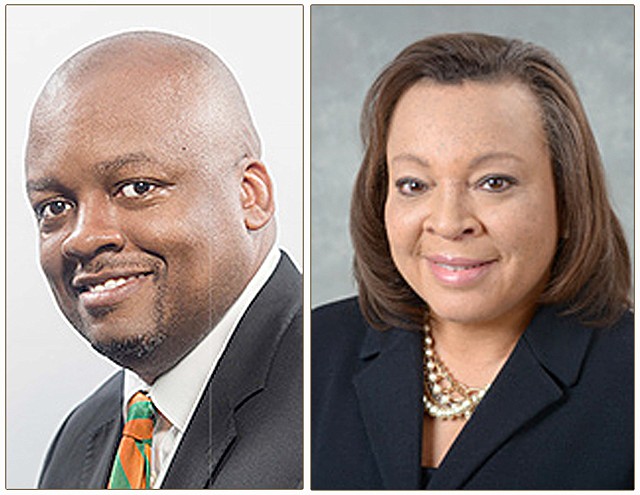By a 29-17 vote, with 10 abstentions, Lincoln University's Faculty Senate approved a resolution Thursday asking the Board of Curators to extend the school's search for its next president.
The three-line resolution said: "We, the Faculty Senate, recommend that the Board of Curators continue the presidential search until such time as it identifies a candidate(s) who possesses the skill set needed at this crucial time in our university's history."
For what may have been the first time in the Senate's history, its leaders said, the faculty group suspended its rules so it could debate and vote on the resolution, without the proposal having been circulated among the faculty members at least a week before the vote.
When told of the vote, Curators President Marvin Teer said, "I respect the Faculty Senate and our employees, and stand behind them 100 percent. They are part of this family. (The resolution) will be part of all of the discussions that we have for the future of Lincoln."
The vote on the resolution came about an hour before the curators interviewed Jerald Jones Woolfolk, the second of two finalists for the presidency, who was identified through a several-months-long search process led by the Boston-based Isaacson, Miller consulting firm.
Curators interviewed the first candidate, William Hudson Jr., on Wednesday.
Curator Winston Rutledge, co-chair of the Presidential Search Committee, said the board likely won't meet to choose the next president until next month - after considering the comments about both candidates made through two online surveys, and after the search committee makes its recommendation.
Monroe "Bud" Moseley, an Isaacson, Miller vice president, said this week 211 people had some contact with the firm about the LU presidency that is being filled after Kevin Rome left Jefferson City last summer to become the new president at Fisk University in Nashville, Tennessee.
However, only 58 of those potential candidates "expressed interest and subsequently shared their resumes and various related materials with the Presidential Search Committee," Moseley reported.
One faculty member asked during Thursday's Senate meeting: "Weren't there any other, better candidates" than the two finalists?
Former dean Linda Bickel serves on the search committee and told the Faculty Senate: "There was a very wide array of people who came forward from many different backgrounds - some had strong academic backgrounds (and) some had very strong student affairs backgrounds. It is very, very, very difficult to find somebody who has both."
Bickel added: "As a whole, this committee believed that these were the two best people - I'm not saying there's 100 percent consensus on the search committee."
She reminded colleagues the search committee members signed confidentiality statements prohibiting their identifying or discussing specific applicants.
Wildlife management professor Adrian Andrei, who also serves on the 22-member search committee, reminded the Faculty Senate: "Five candidates were interviewed (in St. Louis last month). There was voting, there were comments" among the committee members before the two finalists were presented to the curators.
Teer, also on the search committee, said: "I cannot say, with any degree of confidence, that our applicant pool would change significantly" if the search process were re-opened.
Part of the faculty's concerns involves both finalists coming from a student affairs background, rather than from the academic side of college operations.
Math teacher Stephanie Clark, the Faculty Senate's chair, said, "Upon discovering that the search committee identified candidates with prior experience in academic affairs as well as (some with) presidential experience, it would make sense that if these candidates fell short, there may be others out there with the experience and skill set needed to address the critical situations Lincoln is facing at this time."
Andrei reminded the faculty: "At the beginning of the search process, there was an open process for comments describing what skill sets should the next president have."
Those comments were used last fall to guide the consultants' search for candidates.
During the faculty's discussion of the resolution, several also wondered if continuing or re-opening the search would produce any better results.
Amy Gossett, a political science teacher and former Faculty Senate chair, told colleagues: "(This resolution) is not a slight on the two candidates that we've met - they both have good skill sets. They both are very passionate people. They both would be a great vice president of student affairs. They both have expertise in retention.
"But, I would argue, that's not necessarily the beginning or end of our issues here - and it's not the skill set we need for the next three to five years if we want to stay open."
Teer said he's confident either Hudson or Woolfolk - if chosen as Lincoln's next president - would work with faculty and staff to address their concerns.
"I don't think we can effectively educate our students unless we are 'one Lincoln,'" he said. "So I absolutely believe our faculty and our staff will play a critical role in how this university is administered - and we won't see the dissension or division that challenged us in the past."

